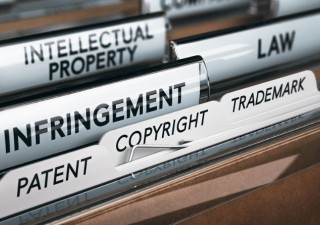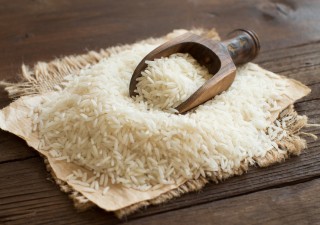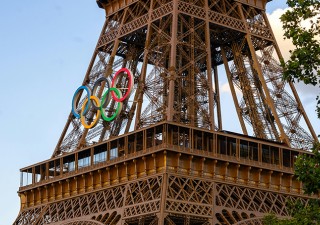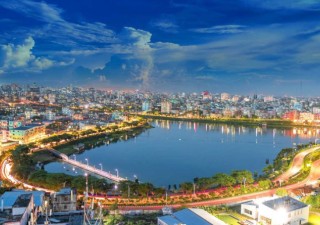Capitalizing on Paris 2024
30 May 2024
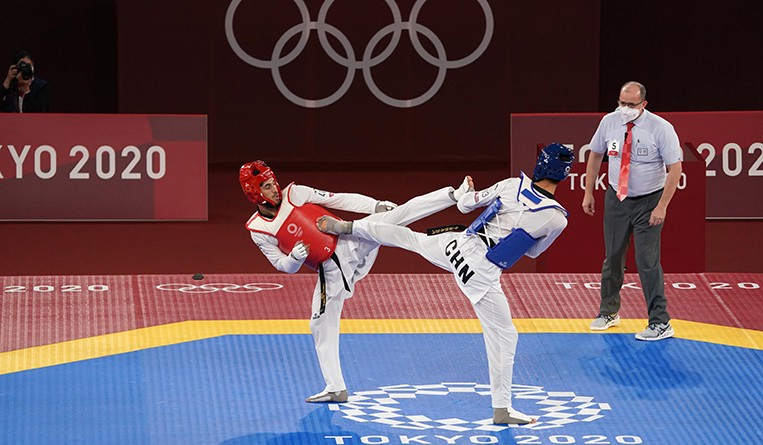
Millions of viewers will tune in to the 2024 Paris Olympics; brands which aren’t official sponsors must be careful they don’t imply they have any relationship with the Games. Photo courtesy of the International Olympic Committee.
Just because millions of potential customers are watching the Olympics doesn’t mean that a company can use the excitement of the Games to market their brand. Lawyers tell Excel V. Dyquiangco how non-official sponsors can quickly find themselves in trouble if they try to ride the Olympics’ coattails.
The 2024 Summer Olympics, officially the Games of the XXXIII Olympiad and commonly known as Paris 2024, is set to become one of the most-watched sporting events of the decade, presenting an unparalleled opportunity for brands to engage with a global audience. As the world gears up for this grand event, companies are eager to harness the excitement to boost their visibility and sales.
However, with such opportunities come significant challenges, particularly in the realm of intellectual property and official sponsorship rights – which come with a hefty price tag but offer exclusive rights and unparalleled exposure. Companies like Coca-Cola, Visa and Nike invest millions to become official partners, gaining rights to use Olympic trademarks, logos, and mascots in their marketing campaigns. These exclusive deals ensure that these brands are directly associated with the prestige and global reach of the Olympics.
Given this dilemma, what are the dos and don'ts to avoid infringing on official sponsorships and intellectual property rights? What constitutes intellectual property infringement in the context of major sporting events, and how can brands ensure they are not violating these protections?
In New Zealand, for example, intellectual property rights (IPRs) may be infringed:
- Under the Major Events Management Act 2007 (MEMA) during the major event period including:
- By unauthorized street trading and advertising in clean zones, or in areas clearly visible from clean zones (including from private property);
- By associating a brand, goods or services, or a person with the major event. An association will be presumed if a person uses any major event emblems and words; or
- By using a permanently protected word or an emblem (the Olympic rings) or a word or sign that is confusingly similar to a permanently protected word or emblem. This can amount to an offence with a fine of up to NZ$150,000 (US$91,500);
- Through copyright and trademark infringement, for example, through the sale of counterfeit clothing or unauthorized use of the UEFA Men’s Euro 2024 logo (a protected trademark). Trademark infringement can extend to the use of a sign that is similar to a well-known registered trademark for dissimilar goods or services. Importantly, copyright arises automatically in New Zealand without the need for registration; or
- Through misleading and deceptive conduct or false representations under the Fair Trading Act 1986 or Advertising Standards Codes, or passing off.
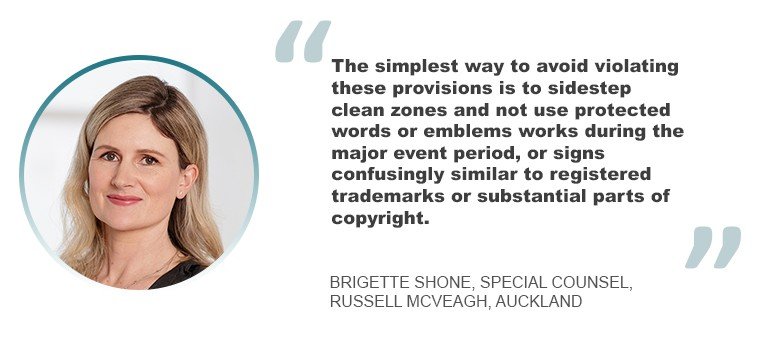
“The simplest way to avoid violating these provisions is to sidestep clean zones and not use protected words or emblems works during the major event period, or signs confusingly similar to registered trademarks or substantial parts of copyright,” said Brigette Shone, a special counsel at Russell McVeagh in Auckland. “For grey areas, such as advertising that might create an association with the major event, it is prudent to seek legal advice first.”
Shone listed a particular example that didn’t violate any of these provisions. In 2011, New Zealand hosted the Men’s Rugby World Cup (RWC 2011). For more than 25 years, Auckland-based Steinlager beer had sponsored New Zealand’s national team, the All Blacks, but Heineken was the official beer sponsor of RWC 2011. Steinlager creatively re-introduced a white can for the duration of the RWC 2011 in support of the All Blacks. The broader campaign included advertisements “to celebrate our 25 years of unconditional support” and television advertisements with rugby themes such as New Zealand’s Men's Rugby World Cup 1987 win, but without mentioning the All Blacks, rugby or the RWC 2011.
“Consumers appreciated the deliberate timing of the promotion, and it was reported that over 2.1 million white cans were sold in New Zealand within three weeks,” she said.
Navigating the fine line
Ranjan Narula, managing partner at RNA Technology & IP Attorneys in Gurugram, said that brands must consult an IP expert to navigate the fine line between marketing and ambush marketing to ensure no campaign or advertisement violates the rules and regulations of the sporting events including infringing their intellectual property.
“Overall, it is a collaboration between creative and legal teams to ensure the rules are complied and unauthorized association or implied endorsement avoided,” he said.
He said that all sporting events, including Paris 2024, lay down the rules to be followed by non-sponsors. Key rules are listed below:
- Using Olympic properties to report on the sporting event is acceptable, provided the same does not create an association between the brand and the Olympics;
- Not use Olympic properties in a commercial manner to promote their brand and profit from the same;
- Not create any domain name, social media account, etc., using the Olympic properties;
- Not use Olympic properties to promote special offers or subscriptions, etc.; and
- Not promote their brands as enhancing the participants’ performance.
Brands can create any marketing campaign to promote their products and capitalize on the public excitement as follows:
- Collaborate with the athletes to endorse the product, while ensuring compliance with rules such as Rule 40 of the Olympic Charter, which states that only approved sponsors may reference “Olympic-related terms” in order to prevent ambush marketing;
- Engage in comparative advertising without disparaging the official sponsors;
- Create creative and original content aired at the time of the sporting event that may allude to the event with no direct reference, thereby requiring the imagination of the public;
- Use generic sporting themes in their marketing campaigns without use of the official trademarks or copyrighted material of the games; and
- Take permission/license from official media partners and any copyright owners to use any footage or pictures from the sporting event, etc.

“The brands, for Paris 2024, are legally allowed to run generic advertising where the only connection between the brand and the games are use of a participant’s picture if the advertisement has been running for at least 90 days prior to the Olympics and has been running consistently with no escalation during the Olympic games,” he said.
He shared an example that occurred during the 1992 Olympic Games. While Reebok was the official sponsor of the event, Nike sponsored the athletes Michael Jordan and Charles Barkley, who were forced by the organizing committee to wear Reebok kits while accepting their medals. However, the athletes, being brand ambassadors of Nike, successfully hid the Reebok logos with the help of the American flag draped by them over the official kit. Nike went on to sponsor Michael Jordan in the 1996 Olympic Games wherein he wore the iconic gold shoes despite the event being officially being sponsored by Reebok. Nike also put out large billboards in Atlanta where the games were being hosted and the same were visible to the public at every broadcast of the games. Nike also opened a new store near the venue that became a huge customer attraction. “By creating no direct association with the games, Nike was able to skirt the rules laid down by the organizing committee,” he said.
In another example, in the 2012 Olympics, Dr. Dre Beats headphones, which were not official sponsors, gave free headphones to athletes in their home country’s colours which were then worn by the athletes while preparing to compete or entering the Olympic games’ venue. “The visibility of the brand during the games led to a massive increase in their sales,” he said. “Since the headphones were given for free and no athlete was paid for promoting the brand, the marketing campaign did not violate any rules and regulations.”
Dos and don’ts

Amy Chan, a principal and leader of the trademarks practice at Spruson & Ferguson in Kuala Lumpur, reiterated that it is important to check the guidelines provided by the relevant organizing committees. “They usually provide clear guidelines on how and when the marks can be used,” she said. “Non-official partners or sponsors should double check the time period in which [logos and other elements] can be used Rule 40 of the Olympic Charter indicates that only official partners can use the sign during the game period.”
She added, “If authorization is required, submit the request as soon as possible in view of the amount of requests received by the organizing committee.”
Chan said that brands can protect themselves from potential legal challenges when their marketing campaigns aim to capture the spirit of events like Paris 2024 and Euro 2024 without crossing the line into infringement or ambush marketing by becoming an official partner or official sponsor or seeking permission in advance from the organizing committee. “You can also run regular marketing campaigns around the same period of time every year, with slight adjustments in size during the year when the sporting event took place, to avoid being perceived as targeting those major sporting events,” she said.
When it comes to what not to do, Nicollette Liu, a senior associate at the same firm said that brands should not use terms which are misleading as to their relationship with the organizing committees such as official partners or official sponsors.

“Do not presume that you are free to use the relevant signs if your company is an official partner or sponsor,” she said. “Always check the agreement or memorandum signed. Usually, there is an annexed branding guideline setting out how the relevant signs should be used, from the Pantone colours to the juxtaposition between your brand and the relevant signs, or even the specific protocol in seeking authorization that has to be followed when using the relevant signs.”
She added not to presume that brands are free to use the relevant signs if their parent company is an official partner or sponsor. “The agreement or memorandum signed usually set out which brands could use the relevant signs. Sub-brands are not always included,” she said.



